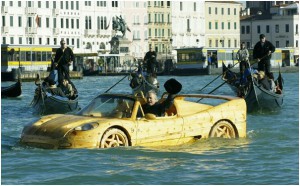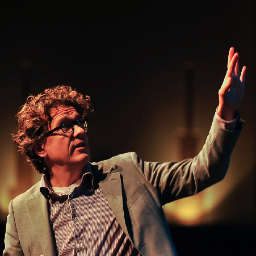GONDOLA-POP AND THE UBERFICATION OF VENICE
July 16, 2015
 Just back from a wonderful week in this beautiful city that simply needs some transportation improvements. The Gondola market in Venice (Italy) is chaotic, inefficient and definitely not transparent. For instance, how can you tell what’s the best place to start a Gondola ride? Who’s the best Gondolier, singer or harmonica player? Wouldn’t it be awesome to control all that with your smartphone?
Just back from a wonderful week in this beautiful city that simply needs some transportation improvements. The Gondola market in Venice (Italy) is chaotic, inefficient and definitely not transparent. For instance, how can you tell what’s the best place to start a Gondola ride? Who’s the best Gondolier, singer or harmonica player? Wouldn’t it be awesome to control all that with your smartphone?
Surprising, but predictable
Some day, this will happen (whether you like it or not). The dynamics behind this prediction is written down in an Harvard Business Review (HBR) article called “Innovating over the Horizon: How to Survive Disruption and Thrive” by Clayton Christensen and Max Wessel. In the HBR webinar supporting the article, the authors called these market changes “surprising, but perfectly predictable.” Uber’s slogan “When lifestyle meets logistics” is the excuse to enter the market of a city without any cars. They can easily scale their existing platform, using the power of what Christensen and Wessel call “the extendable core.” Uber can take away all the hassles – from finding your top-1 Gondolier to having your fares automatically paid while leaving the boat – this is the lifestyle we’re getting used to.more–>
Digital strategies in Selfie-stick city
If anything is apparent in Venice, it’s the obsession of tourists to make the Gondola experience unforgettable. They’re constantly staring into their cameras. I’ve seen more selfie-stick vendors in Venice than sellers of the famous Murano glass items. In this self-obsessed, smart-phone dominated pop-culture, the Gondoliers look like ghosts of the past. Charming, but is it sustainable?
Of course not. But it’s a very traditional market. A Gondolier is expected to earn $150,000 in a year and if he dies the license goes to his widow and it will be transferred to someone in the family. Families rule these canals for ages; and although the prices are set by the Government, they still let you negotiate and pay more if they can. And… pay cash please, in order to pay “no tax.” There are 425 official licenses – making a $63 million market (Gondolas only, Water Taxis excluded).
War on the canals
It will be war on the canals, if Uber introduces Water-pop – where Venetian citizens would be using their own boat as a taxi. It’s not the ultimate Gondola experience of course, but at least it will be cheap, easy to book, and you’ll be allowed to bring your selfie-stick. Second step is to go upmarket and introduce “Gondola Black” (similar to the Uber Black service). In a few years, the whole market can be transformed. The Italian tax-man would be happy because it would make the market transparent, tourists would be happy, but what about the Gondoliers and the companies they work for?
The job to be done
Taking the advice of professor Clayton Christensen, they should adopt “a job to be done” attitude: What is the thing that a tourist wants? The job is creating the ultimate unforgettable experience. As soon as you embrace that idea, you’re more likely to see any new technology as an opportunity to improve that experience. But the Gondoliers stick to their harmonica and “O sole mio.” They could easily make the trip a multi-media experience. How about video- and photo-enhanced Gondolas recording every minute of the ride and doing the “selfie work” for them, so they can just “live in the moment” and enjoy? Other steps could be: Contacting the Gondolier through an App, like him and follow his life on Facebook, buy personalized T-shirts and other goodies, etc. etc. There’s no end to possibilities to deliver more value from Digital solutions.
Death in Venice
Gondoliers shouting “Gondola, Gondola” on the bridges between the canals will disappear. Gondoliers shouting and cursing at the Vaporetto boatsmen will disappear (afraid of low client ratings). No hassle to choose, book and pay. It will be smooth, easy and super efficient. “No one likes a city that’s too smart” says sociologist Richard Sennet. But the more we love our smartphones, the more likely would Uberfication of culture happen.

 English | EN
English | EN 